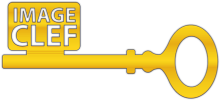- ImageCLEF 2025
- LifeCLEF 2025
- ImageCLEF 2024
- LifeCLEF 2024
- ImageCLEF 2023
- LifeCLEF 2023
- ImageCLEF 2022
- LifeCLEF2022
- ImageCLEF 2021
- LifeCLEF 2021
- ImageCLEF 2020
- LifeCLEF 2020
- ImageCLEF 2019
- LifeCLEF 2019
- ImageCLEF 2018
- LifeCLEF 2018
- ImageCLEF 2017
- LifeCLEF2017
- ImageCLEF 2016
- LifeCLEF 2016
- ImageCLEF 2015
- LifeCLEF 2015
- ImageCLEF 2014
- LifeCLEF 2014
- ImageCLEF 2013
- ImageCLEF 2012
- ImageCLEF 2011
- ImageCLEF 2010
- ImageCLEF 2009
- ImageCLEF 2008
- ImageCLEF 2007
- ImageCLEF 2006
- ImageCLEF 2005
- ImageCLEF 2004
- ImageCLEF 2003
- Publications
- Old resources
You are here
BirdCLEF 2024

Tentative Timeline
- 3 April 2024: Competition Start at Kaggle
- 10 June 2024: Competition Deadline
- 17 June 2024: Deadline for submission of working note papers by participants [CEUR-WS proceedings]
- 26 June 2024: Notification of acceptance of working note papers [CEUR-WS proceedings]
- 8 July 2024: Camera-ready deadline for working note papers.
- 9-12 Sept 2024: CLEF 2024 Grenoble - France
Motivation
Birds are excellent indicators of biodiversity change since they are highly mobile and have diverse habitat requirements. Changes in species assemblage and the number of birds can thus indicate the success or failure of a restoration project. However, frequently conducting traditional observer-based bird biodiversity surveys over large areas is expensive and logistically challenging. In comparison, passive acoustic monitoring (PAM) combined with new analytical tools based on machine learning allows conservationists to sample much greater spatial scales with higher temporal resolution and explore the relationship between restoration interventions and biodiversity in depth.
Task Description
For this competition, you'll use your machine-learning skills to identify under-studied Indian bird species by sound. Specifically, you'll develop computational solutions to process continuous audio data and recognize the species by their calls. The best entries will be able to train reliable classifiers with limited training data. If successful, you'll help advance ongoing efforts to protect avian biodiversity in the Western Ghats, India, including those led by V. V. Robin's Lab at IISER Tirupati.
The broader goals for this Kaggle competition include:
(1) Identify endemic bird species of the sky-islands of the Western Ghats in soundscape data.
(2) Detect/classify endangered bird species (species of conservation concern) featuring limited training data.
(3) Detect/classify nocturnal bird species which are poorly understood.
Thanks to your innovations, it will be easier for researchers and conservation practitioners to survey avian population trends accurately. As a result, they'll be able to evaluate threats and adjust their conservation actions regularly and more effectively.
Kaggle competition
As in previous years, BirdCLEF 2024 will be held at Kaggle as a so-called "code competition". We will award $50,000 in prize money to the best scoring submissions. More information on the competition and on how to participate can be found here: BirdCLEF competition website.
Publication Track
All registered participants are encouraged to submit a working-note paper to peer-reviewed LifeCLEF proceedings (CEUR-WS) after the competition ends.
This paper must provide sufficient information to reproduce the final submitted runs.
We will award the two best working notes with a prize of $2,500
The results of the campaign appear in the working notes proceedings published by CEUR Workshop Proceedings (CEUR-WS.org).
Selected contributions among the participants will be invited for publication in the Springer Lecture Notes in Computer Science (LNCS) the following year.
For detailed instructions, please refer to SUBMISSION INSTRUCTIONS.
A summary of the most important points:
- All participating teams with at least one graded submission, regardless of the score, should submit a CEUR working notes paper.
- Submission of reports is done through EasyChair – please make absolutely sure that the author (names and order), title, and affiliation information you provide in EasyChair match the submitted PDF exactly
- Deadline for the submission of initial CEUR-WS Working Notes Papers (for the peer-review process): 31 May 2024
- Deadline for the submission of Camera Ready CEUR-WS Working Notes Papers:: 8 July 2024
- Templates are available here
- Working Notes Papers should cite both the LifeCLEF 2024 overview paper as well as the PlantCLEF task overview paper, citation information will be added in the Citations section below as soon as the titles have been finalized.
Acknowledgements
Compiling these extensive datasets was a major undertaking, and we are very thankful to the many domain experts who helped to collect and manually annotate the data for this competition. Specifically, we would like to thank (institutions and individual contributors in alphabetic order):
Chemnitz University of Technology
Maximilian Eibl and Stefan Kahl
Columbia University
Vijay Ramesh
Google Research
Tom Denton
Indian Institute of Science Education and Research (IISER), Tirupati
Chiti Arvind, Harikrishnan C.P., Viral Joshi, V.V. Robin, and Suyash Sawant
K. Lisa Yang Center for Conservation Bioacoustics
Stefan Kahl, Holger Klinck, and Vijya Ramesh
LifeCLEF
Alexis Joly and Henning Müller
Nature Conservation Foundation
Divya Mudappa and T.R. Shankar Raman
Parry Agro Industries Ltd.
Project Dhvani
Meghana Srivathsa
Tamil Nadu Forest Department
Tata Coffee Ltd.
Tea Estates India Ltd.
The Rufford Foundation
The University of Florida
Akshay V. Anand
Xeno-canto
Willem-Pier Vellinga
| Attachment | Size |
|---|---|
| 635.12 KB |
